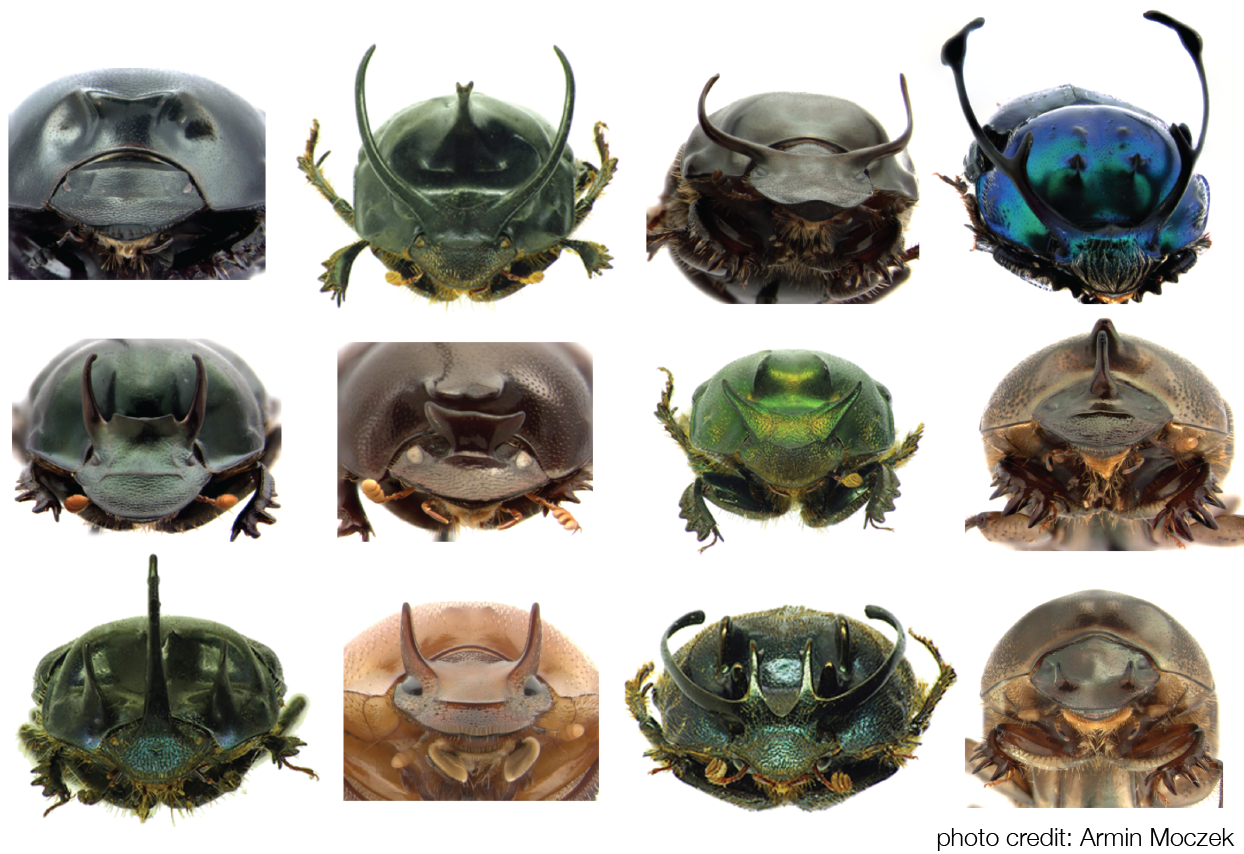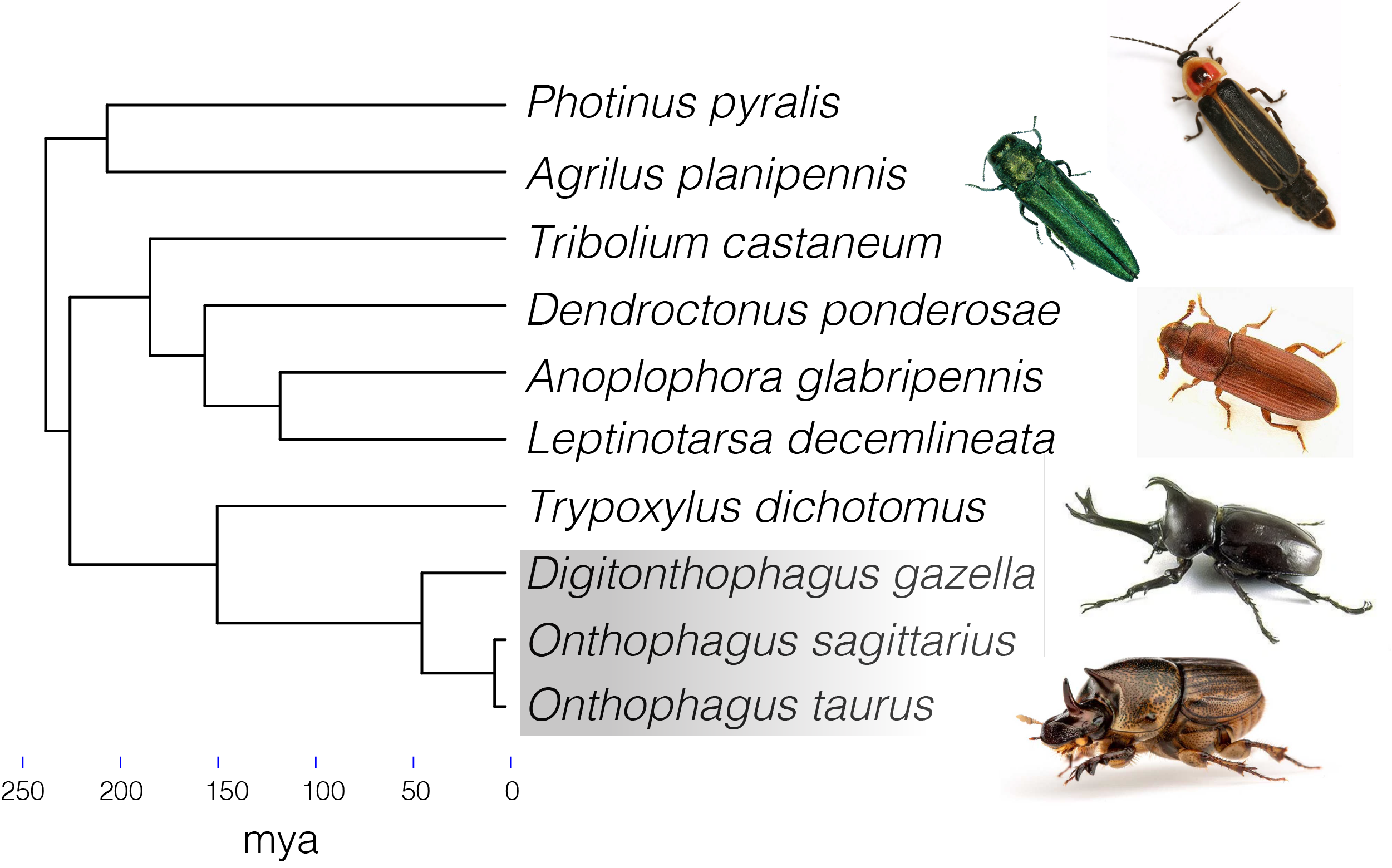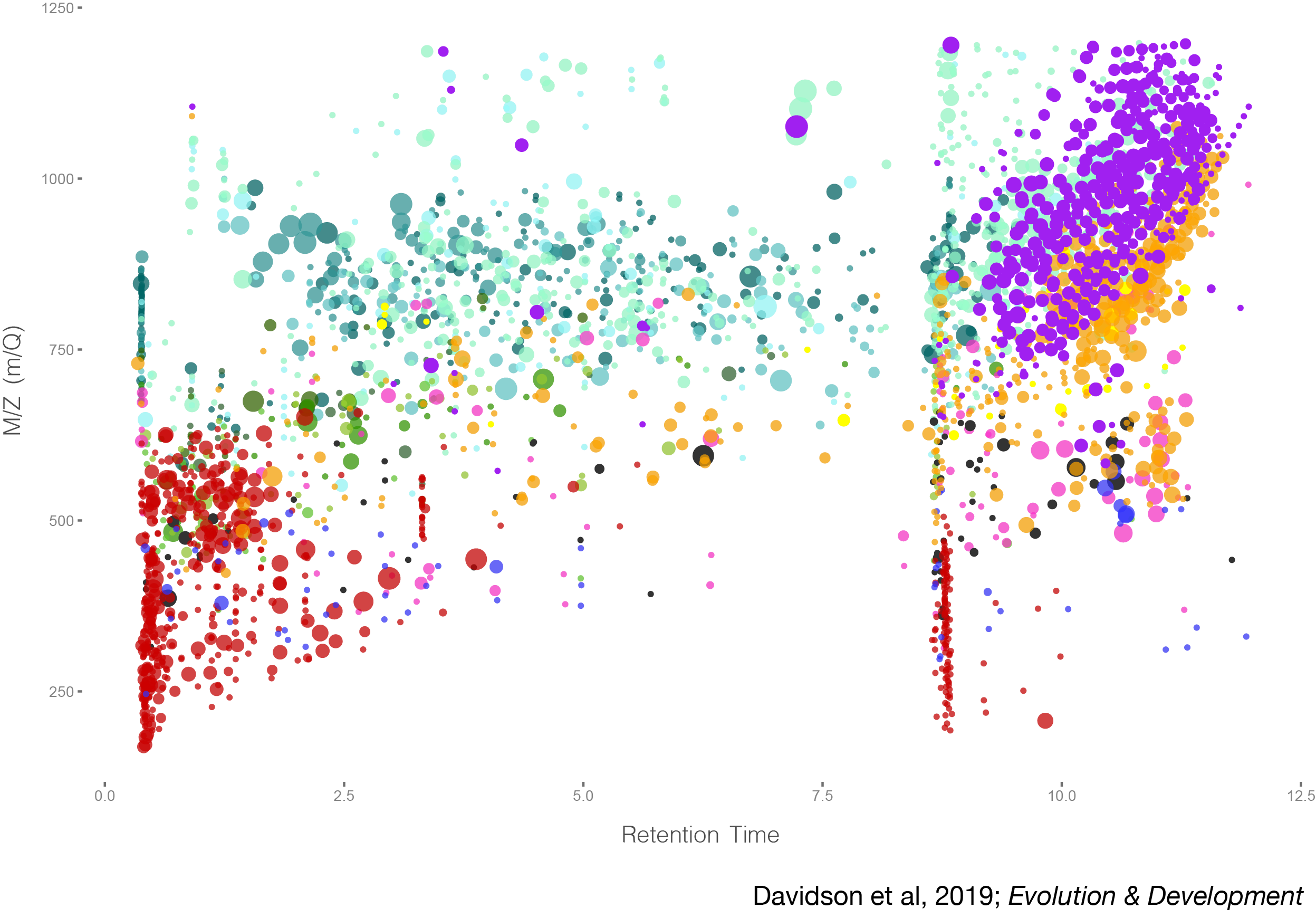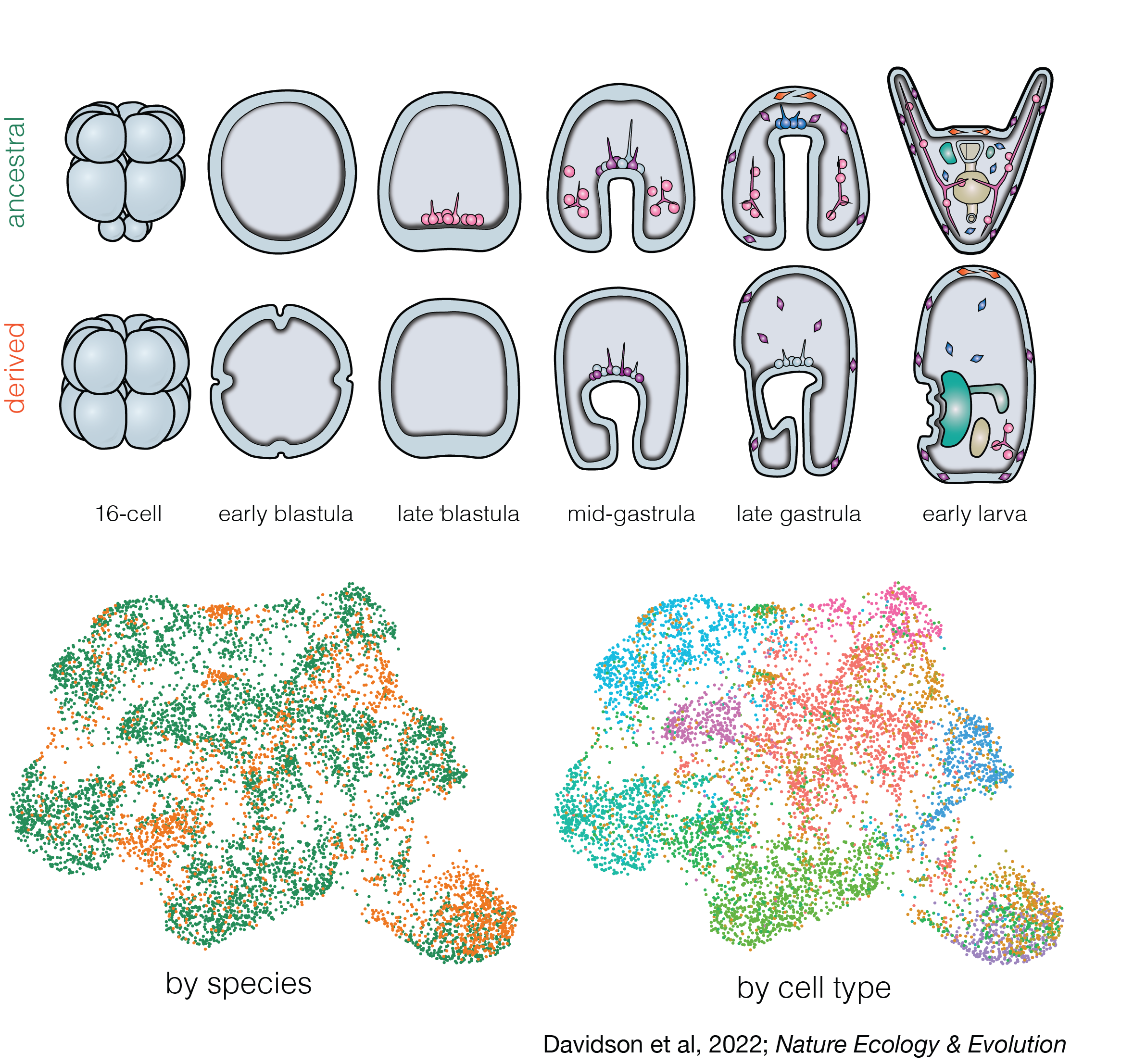Evo-Devo of Novel Traits
Beetle horns exhibit an extraordinary degree of inter- and intra-specific variation. We are exploring the developmental basis for horn
shape, size, number, and position at macro- and micro-evolutionary timescales. We are especially interested in the activity of gene networks
and cis-regulatory elements in mediating the (often rapid!) evolution of this trait.
Evolutionary Genomics of Dung Beetles
Genomic resources, including chromosome-length assemblies, are rapidly accruing for dung beetles and the Coleoptera more broadly. We are taking comparative
approaches to describe the genomic basis for unique dung beetle adaptations that have enabled the extreme levels of diversfication within this clade,
such as nutritional plasticity, coprophagy, and brood ball construction.
Metabolomics of Developmental Plasticity
Many dung beetle species exhibit highly sensitive and elaborate responses to developmental nutrition. We are implementing metabolomic approaches to better
understand how nutritional signaling and energetics influence the development and evolution of plastic traits.
Invertebrate Larval Life History Evolution
Marine invertebrates exhibit an enormous array of larval developmental strategies and body plans.
As a result, many species are excellent models for understanding the evolutionary interplay among gene regulation, development, and selection.
We are studying sea urchin larvae to better understand how gene regulatory interactions enable evolutionary changes in early embryogenesis and
larval development.



